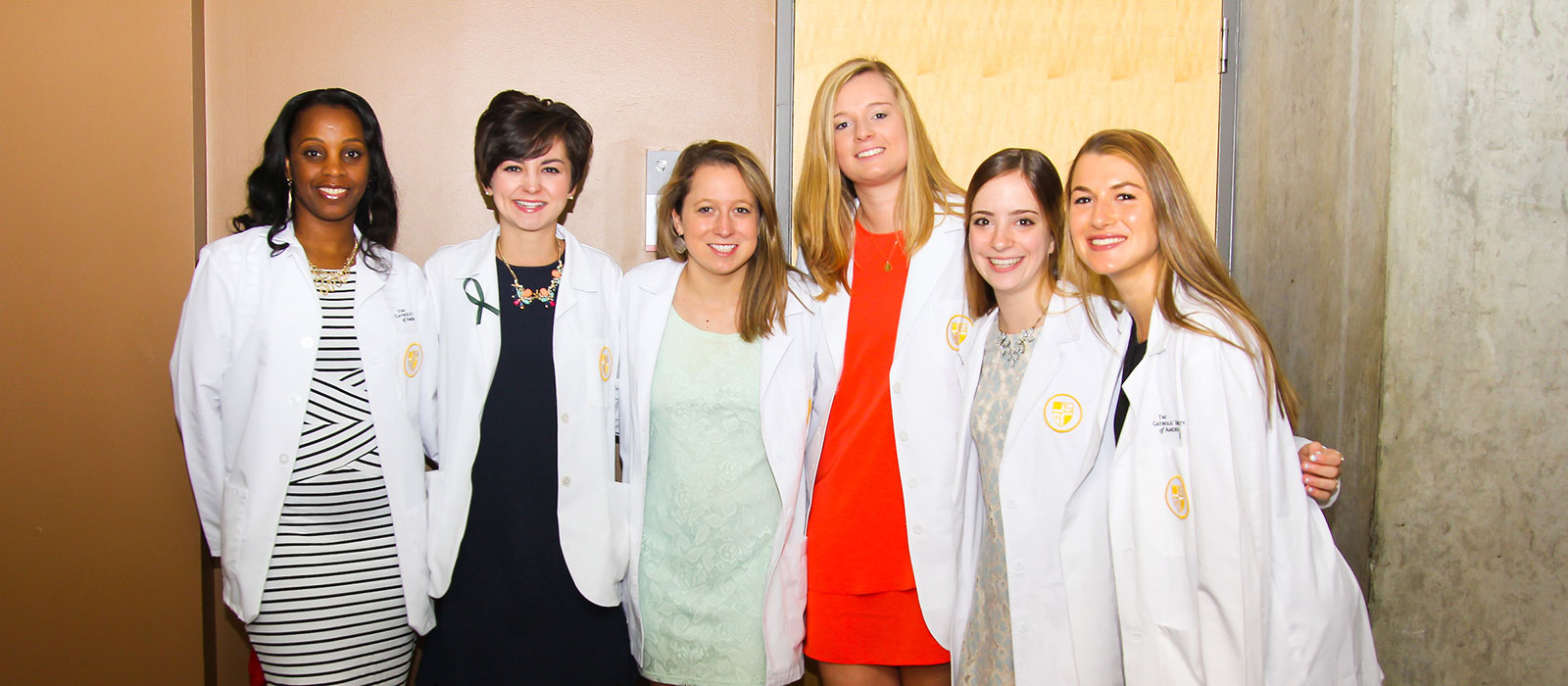Preceptors, as clinical educators, are integral to the professional development of advanced practice nursing students.
The responsibility of advanced practice nurses to “mentor other …nurses and colleagues” is highlighted by the American Nurses Association’s document “Nursing: Scope and Standards of Practice” (2004). The preceptor is one who “engages the student in the guided experience of applying knowledge to practice.” The preceptor serves as a role model and promotes clinical and professional competency, student autonomy, and socialization into the particular role the student has chosen (NONPF Preceptor Manual and ACHNE, Graduate Education for Advanced Practice Public Health Nursing, 2007). At The Catholic University of America, the preceptor works in partnership with faculty to provide the student with opportunities to develop and refine necessary skills and critical reasoning in the clinical management of patients, or populations. Preceptors are provided with a copy of the course and clinical objectives for each student’s rotation as well as information about the student’s mastery of past clinical objectives. Preceptors will be expected to provide students with formative and summative evaluations, usually at midterm and at the completion of the course. However, final course grades remain the responsibility of the course director.

